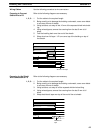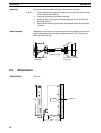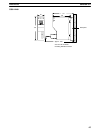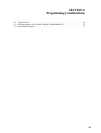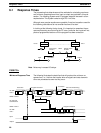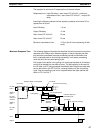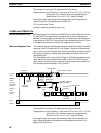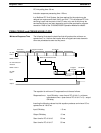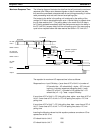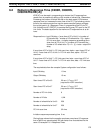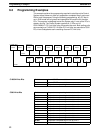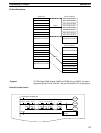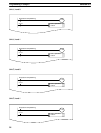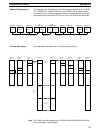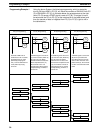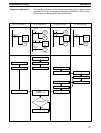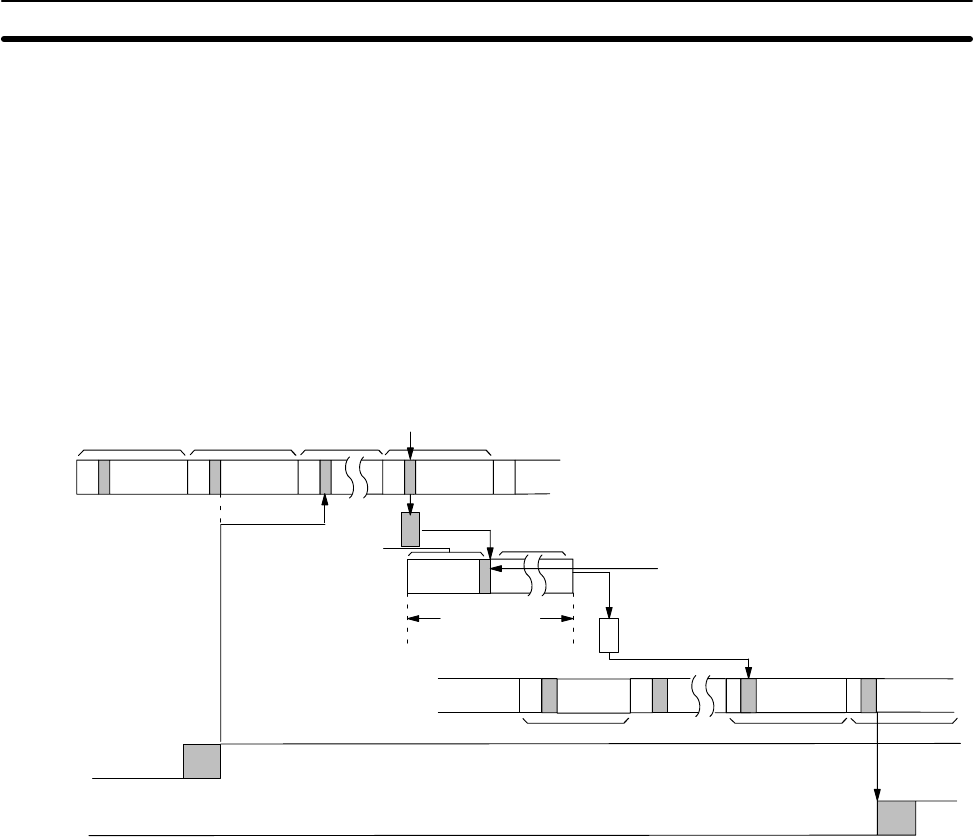
50
The following diagram illustrates the data flow that will produce the maximum
response time. Delays occur because signals or data is received just after
they would be processed or because data is sent during processing. In either
case, processing must wait until the next scan/polling cycle.
First output to the buffer in the polling unit is delayed by the setting of the
number of LR bits to be refreshed each scan. A similar delay is present when
the LR data reaches Unit 7. The polling delay is the result of the LR data in
its PC being updated immediately after the previous was sent to the buffer in
the PC Link Unit, cause a delay until the next polling cycle. One more polling
cycle is then required before the data reaches the buffer in PC Link Unit 7.
PC with
Unit 0
Buffer in Unit 0
PC Link Unit
transmissions
Buffer in Unit 7
PC with
Unit 7
Input
Output
PC Link
polling time
Scan time
Scan time
I/O refresh
Induction sequence
processing time
Maximum
transmission
time
Polling delay
The equation for maximum I/O response time is thus as follows:
Response time = input ON delay + [scan time of PC of Unit 0 x (number of
LR transfer bits ÷ I/O refresh bits)] + alpha + (PC Link poll-
ing time + induction sequence processing time) + {scan
time of PC of Unit 7 x [(number of LR transfer bits ÷ I/O
refresh bits) x 2 + 1]} + beta + output ON delay
If scan time of PC of Unit 0 > PC Link polling time, alpha = scan time of PC of
Unit 0. If scan time of PC of Unit 0 < PC Link polling time, alpha = PC Link
polling time.
If scan time of PC of Unit 7 > PC Link polling time, beta = scan time of PC of
Unit 7. If scan time of PC of Unit 7 < PC Link polling time, beta = PC Link
polling time.
Inserting the following values into this equation produces a maximum I/O re-
sponse time of 661.3 ms.
I/O refresh bits for Unit 0 256
I/O refresh bits for Unit 7 256
Maximum Response Time
Response Times Section 6-1



